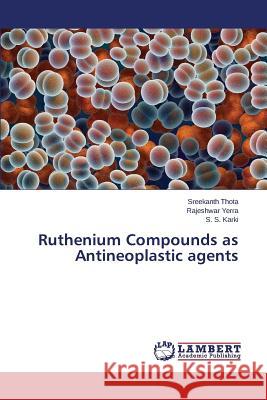Ruthenium Compounds as Antineoplastic Agents » książka
Ruthenium Compounds as Antineoplastic Agents
ISBN-13: 9783845404042 / Angielski / Miękka / 2014 / 100 str.
Whilst the chemotherapeutic success of platinum is undeniable, it is by no means the perfect drug. It is not effective against many common types of cancer, drug resistance is common and it has a deplorable range of side effects, which can include nerve damage, hair loss and nausea. To overcome these limitations, some compounds based on ruthenium have been developed and tested against cancer cell lines. These compounds tend to cause fewer side effects compared to platinum drugs. Ruthenium compounds represent one of the great success stories of metals in medicine. Two ruthenium compounds are currently undergoing clinical evaluation as anticancer drugs NAMI-A and KP1019. A great deal of the remaining ruthenium complexes, these efforts are continue today with increased realization that new strategies are needed to overcome issues of toxicity and resistances inherent treatment by the ruthenium anticancer agents. The present study deals with the new strategies for the development of novel ruthenium compounds and screened for the in vivo anticancer activity against transplantable murine tumor cell lines.
Whilst the chemotherapeutic success of platinum is undeniable, it is by no means the perfect drug. It is not effective against many common types of cancer, drug resistance is common and it has a deplorable range of side effects, which can include nerve damage, hair loss and nausea. To overcome these limitations, some compounds based on ruthenium have been developed and tested against cancer cell lines. These compounds tend to cause fewer side effects compared to platinum drugs. Ruthenium compounds represent one of the great success stories of metals in medicine. Two ruthenium compounds are currently undergoing clinical evaluation as anticancer drugs NAMI-A and KP1019. A great deal of the remaining ruthenium complexes, these efforts are continue today with increased realization that new strategies are needed to overcome issues of toxicity and resistances inherent treatment by the ruthenium anticancer agents. The present study deals with the new strategies for the development of novel ruthenium compounds and screened for the in vivo anticancer activity against transplantable murine tumor cell lines.











